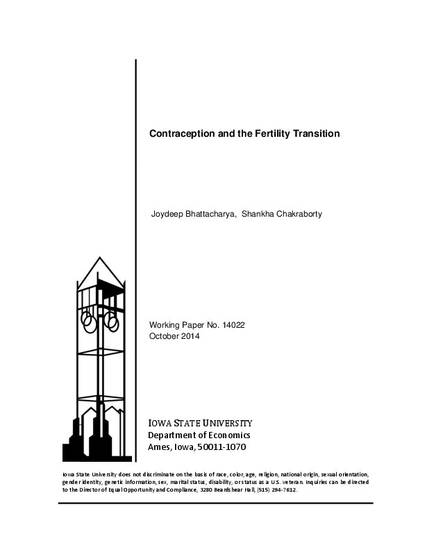
Dominant paradigms of fertility choice either ignore or assume small, unchanging cost of fertility limitation. Inspired by the historical English experience that is contrary to such assumptions, we modify the Beckerian paradigm to incorporate costly, societal influence on contraception. In the model economy, heterogeneous, generationally-linked households choose between “traditional” and “modern” contraception. The modern has a higher fixed cost (reflecting social opprobrium) but a lower variable cost of averting childbirths. Initially, the rich adopt the modern, and in doing so, unleash a social diffusion process. Eventually everyone switches lowering fertility further and across society. What hastens the switch is the decline in child mortality. The model is broadly consistent with important features of the English transition and has implications for more recent transitions.
Available at: http://works.bepress.com/joydeep_bhattacharya/8/
